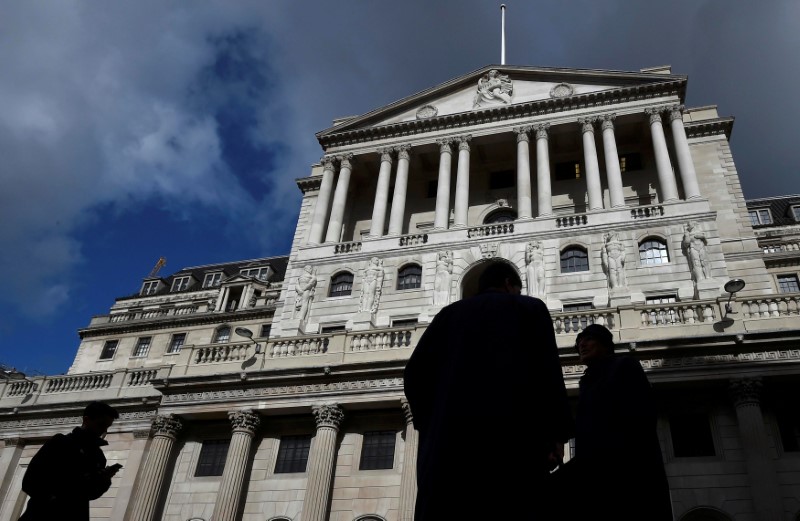LONDON (Reuters) - Britain still faces a "challenging period" for financial stability despite resilience seen after the European Union referendum, and rules for banks must remain tight, the Bank of England said on Thursday.
Britain's government is keen to ensure London retains its place as Europe's leading financial centre even after the country leaves the EU, but the BoE said there was no case to loosen bank capital rules.
"Although financial stability has been maintained in the United Kingdom through a period of volatility ... the United Kingdom faces a challenging period of uncertainty and adjustment," the BoE's Financial Policy Committee said in a quarterly statement.
With UK-regulated banks' future access to EU markets unclear, Britain's government is likely to come under pressure from the industry to make London a more attractive location.
The Confederation of British Industry has already called for banks to be removed from the "naughty step", after a prolonged regulatory crackdown following the financial crisis.
But the BoE said that "irrespective of the particular form of the United Kingdom's future relationship with the EU", Britain's financial system needed "robust prudential standards".
The FPC said the government's 'Help to Buy' mortgage guarantee scheme had not posed a risk to financial stability during the past year of its operation.
The central bank said use of the scheme had declined significantly, and accounted for just 25 percent of high loan-to-value lending in the first three months of 2016, down from 70 percent in 2014.
The scheme is due to come to an end later this year, and new finance minister Philip Hammond will have to decide whether to extend his predecessor George Osborne's project. The BoE said it did not expect a big impact on lending if the scheme closed.
The FPC made no new regulatory recommendations, and stood by its decision in July to reverse a move made earlier in the year that could have increased banks' capital requirements.
The increase recommended in March was linked to an expected upturn in lending, but the central bank now expects economic growth to slow sharply over the coming year.
However, it said it would undertake a regular review of banks' lending in November "to insure against the risk of a marked loosening in underwriting standards and a significant rise in the number of vulnerable households."
The BoE will also publish its stress test of banks, which will include looking at how they would cope with the risks created by China's rapid lending growth.
One area where the BoE said risks had already materialised was in Britain's commercial real estate sector, where it said transactions were now at the lowest since 2009.
In July and August, several real estate funds blocked withdrawals as investors rushed to take out their money before the value of properties was marked down.

(This story has been refiled to remove word 'stay' in the first paragraph)